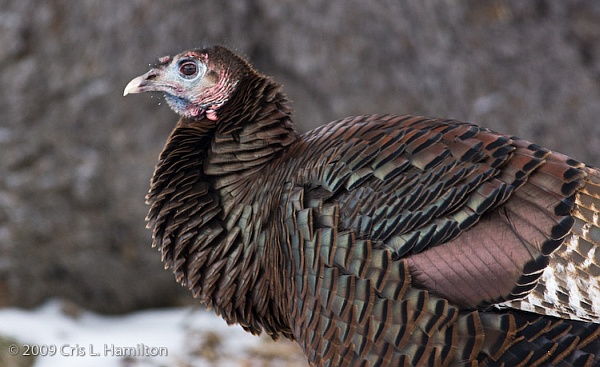
The most fascinating principle I learned from Michael Pollan’s Botany of Desire is that the plants humans want (desire) are the ones that thrive.
Thanksgiving is a good reminder that this principle applies to turkeys, too.
Humans have probably hunted wild turkeys since Native Americans first arrived on this continent. The pre-Columbian Mexicans domesticated wild turkeys between 800BC and 200BC.
When Spanish conquistadors arrived 2,000 years later, in the early 1500s, they agreed that domestic turkeys were quite tasty and shipped some back home. Turkey became such a popular food in Europe that when the English settlers came to North America they brought domestic turkeys with them.
Wild turkeys were at their peak. Then things went downhill. Over the next 200 years habitat loss and unregulated hunting decimated the wild turkey population until there were only a few thousand left in Pennsylvania.
They could have gone extinct in eastern North America. Our desire brought them back.
In the late 1800’s Pennsylvania realized that hunting had to be regulated. The newly formed Pennsylvania Game Commission banned turkey hunting and rebuilt the population by stocking birds from Mexico. Then in 1929 they began a propagation program that raised wild turkeys for release into the wild.
This combination worked so well that today Pennsylvania’s wild turkeys have a thriving population of over 360,000 birds.
Wild turkeys are smart about predators, as we learned on PBS’s My Life as a Turkey. They’re wary where hunted but relatively easy to see in Pittsburgh’s suburbs and city parks.
So on Thanksgiving Day it’s interesting to reflect that most of us eat domestic turkeys. Our desire to eat them nearly extirpated wild turkeys and that same desire brought them back.
Turkeys could be a chapter in the zoology of desire.
(photo by Cris Hamilton)
p.s. If you missed My Life as a Turkey on PBS, you can watch the full episode online here.
Happy Thanksgiving, Kate! Thanks for the mention of one of my favorite books, “Botany of Desire.”
Great article, Kate. I didn’t realize they were nearly wiped out in this area. There are two flocks of wild turkeys in our North Hills neighborhood, and it has been a joy watching them grow up. The group that started out at 24, four of which were adults, has dwindled to 21. I hope it’s because some have set out on their own. The other group, 10 in size, still shows up occasionally. It made watching “My Life as a Turkey” that much more enjoyable. Happy Thanksgiving!
Happy Thanksgiving, Kate. I am thankful for you, your knowledge, your resources and your willingness to share it with all of us.
Thank you for yet another interesting article. I will have to find the Botany of Desire (sounds like an interesting read).
Happy Thanksgiving to you and your family, Kate–hope you have a joyful holiday including the weekend.
Thanks! When are you going to write a book?
Kate, Happy Thanksgiving! I am thankful for your blog, which always brightens up my day because of the photos and tidbits about the natural world. I’ll have to check out Pollan’s book sometime.
After years of walking trails outside DC named “Wild Turkey Trail” and “Turkey Run Trail” without one sighting, I finally saw wild turkey for the first time when I was visiting West Virginia at Grand View near Beckley. This was an exceptionally exciting moment for me; they were certainly beautiful and amusingly waddled away from me the same way our cats do when they don’t want picked up but don’t have the energy to run off.
Visiting Pittsburgh for the holiday today, my family was unfortunately exposed to my darker side when a local newscast just showed the unfortunate demise of a wild turkey who had an accident in a populated area. As the newsman and policeman traded barbs about the poor bird’s fate, I went on a swearing tirade towards the television about how it wasn’t funny and the two dimwits on the television weren’t nearly as fine a creature as the turkey was.
Oh well, hopefully others had a happier Thanksgiving with more civilized folks than me…